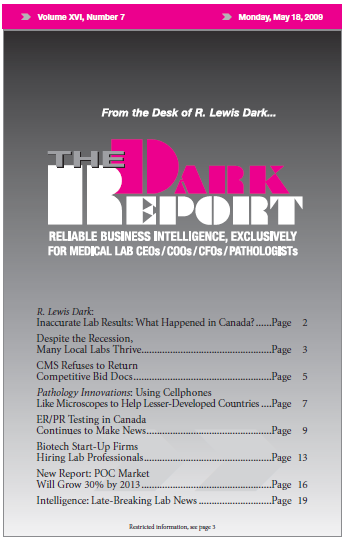CEO SUMMARY: The Acting Secretary of Health and Human Services (HHS) has refused the request of three San Diego-area labs for the return of their bid documents—even though the competitive bidding demonstration project was repealed by Congress last July. The HHS Acting Secretary says he has no obligation to return the documents and he intends …
CMS Refuses to Return Competitive Bid Docs Read More »
To access this post, you must purchase The Dark Report.


